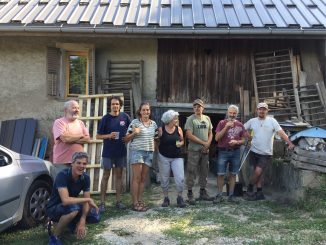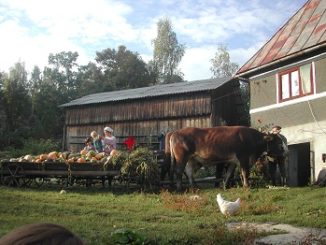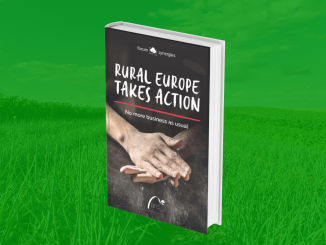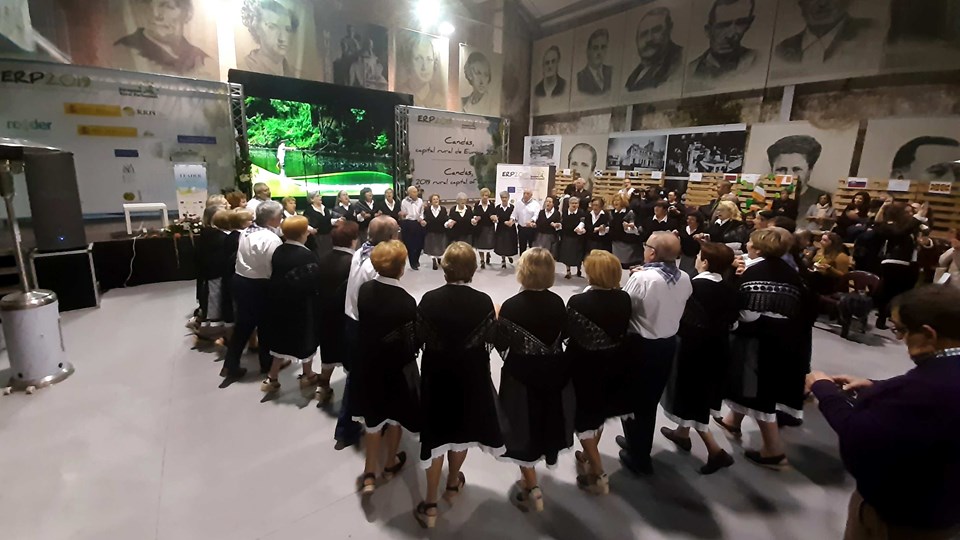
Three of the ARC2020 team was in Candas in Asturais, northern Spain, where they attended the 4th Rural Parliament. It was quite the time, meeting and listening, exploring and sampling, thinking and doing over four wet but wonderful days. ARC2020 ran a local food workshop on two occasions, while Forum Synergies launched a book.
NEW: Read the Rural People’s Declaration from Candas Asturais: declaration
European Rural Parliament
We took many routes to eventually find our way to the coastal town of Candas – it was a case of rain and trains in northern Spain, with epic meanders we’ll fill you in on later. Hannes Lorenzen, Helene Schulze and myself Oliver Moore found ourselves in this mountainous region, in a town by the ocean, for jam packed days exploring the state of rural Europe in 2019.
The European Rural Parliament (ERP) “is a long-term campaign to express the voice of rural people in Europe; and to promote self-help and action by the rural people, in partnership with civil society and governments.”
This 4th ERP of course focused on rural policy, but also on the emerging signs of a rural renaissance; it covered CAP, but also had a rich programme of cultural activities. And this is how it should be – a full gamut of experiences, with hundreds of participants, from Belaruis to Iceland.
Finalised manifestos and Declarations will follow, but for now, here are some highlights from the ARC team.
1: A book was launched: Rural Europe on the Move
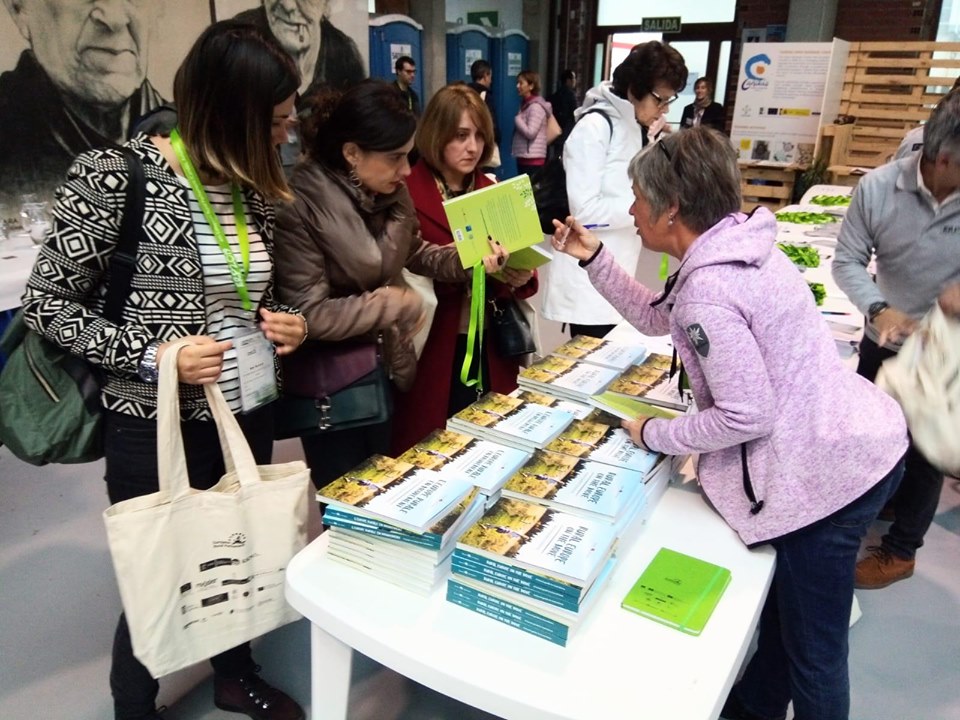
Hannes Lorenzen and Helene Schulze of ARC2020 were both centrally involved in a really interesting new publication. For the last 25 years, Forum Synergies has hosted visits and international exchanges of within rural Europe, to places where communities are building stronger, more resilient regions. Rural Europe on the Move: A Travel Guide to Transitions tracks this journey. From the island of Eigg in Scotland to Karditsa in Greece, it looks at some of the challenges facing rural Europe and the innovative, grassroots response which have popped up across the continent. Exploring herbalism, civic dialogue, access to land, youth engagement, cooperative governance mechanisms and much more, the book highlights what can happen when communities take rural development into their own hands.
Fittingly, Rural Europe on the Move was launched at this year’s ERP. It received an enthusiastic reception, with several hundred copies snaffled up. A more in-depth introduction of the book will feature on the ARC2020 soon with guidance on how you can get your hands on it too.
2: The voice of European Rural Futures: The second European Rural Youth Parliament
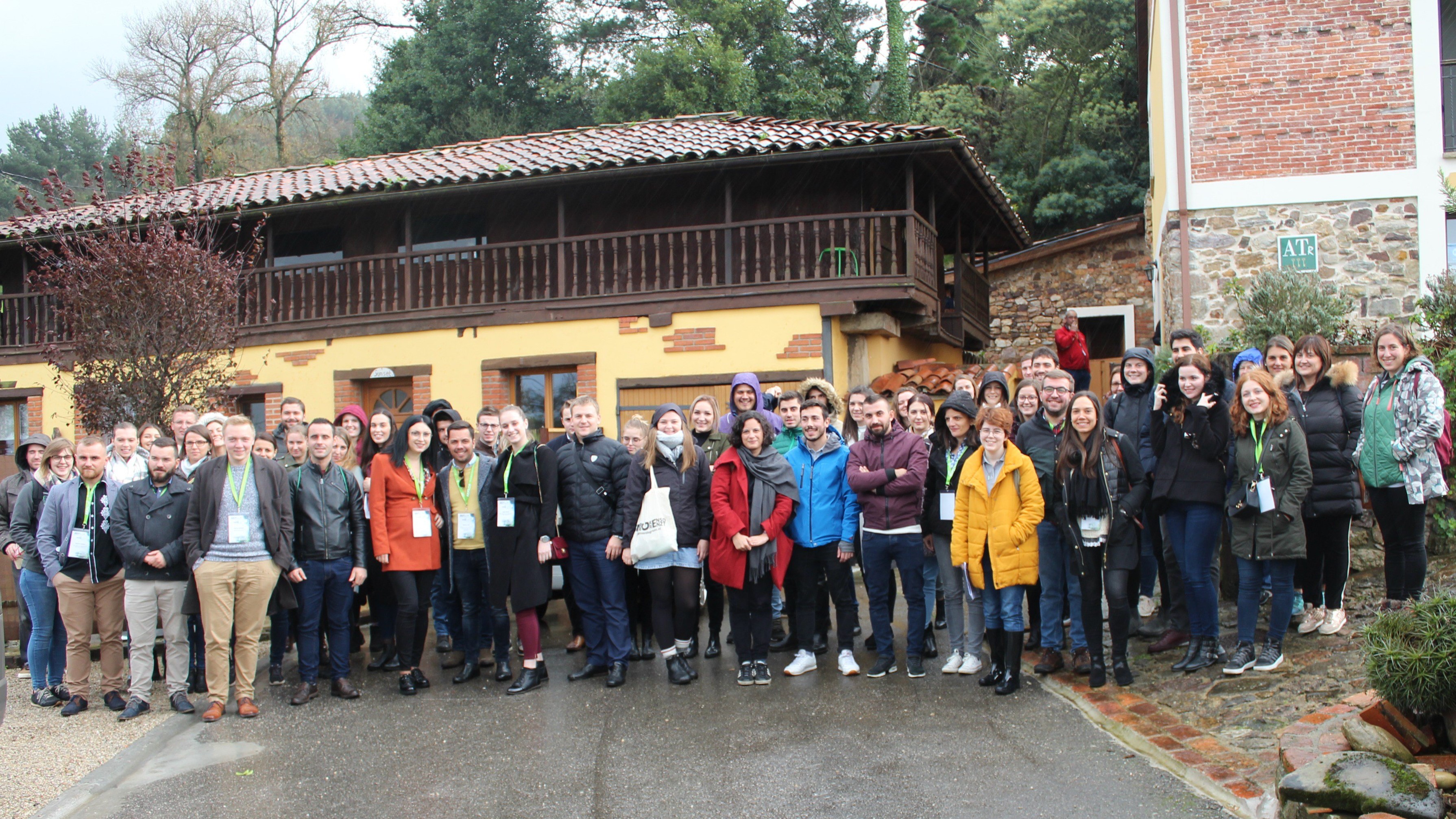
The ERP was warmed up with a gathering of 70 rural youth from 16 countries across the continent in the days before. Hosted by the Latvian Rural Forum, the European Rural Youth Parliament worked with established focus areas: diverse opportunities for economic activities; Sustainable food and agriculture system; Infrastructural and digital connectivity; Accessibility and quality of public services; and Civic engagement and political awareness.
Over the course of 2 days, the European Rural Youth Parliament heard from experts in the field of rural development and exchanged on the critical challenges and opportunities facing the various corners of rural Europe. With the intention to improve the lives of young people in rural areas and strengthen their voice in regional, national and European decision-making, they produced the ERYP Youth Declaration.
“During the ERYP, there was this revolutionary feeling that something great is ahead of us” says Artis Krists Mednis, one of the organisers. “The event gathered a number of very active young people who are ready to get involved in future activities, too. This means that ERP can be sure about having a powerful input from youth because we share the same challenges but we might have different perspectives talking about the solutions.”
Another organiser, Anita Selicka, agrees and adds that the diversity of voices involved in the ERYP and ERP, including EU citizens as wells as Europeans outside of the EU, is a real strength for European rural civic society, critical especially at this time ahead of the next planning period.
The ERYP Declaration is set to be presented to MEPs in Brussels in January. You can download the declaration here.
3: Focus on – Rural Renaissance and ecovillages
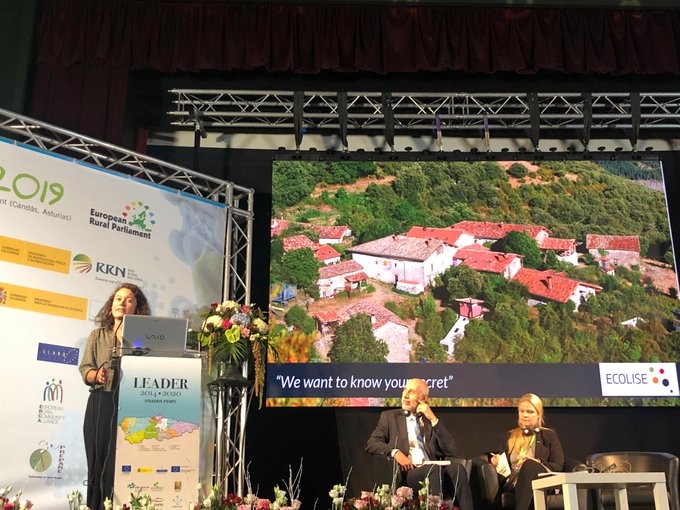
Section by Iva Pocock of Ecolise
Francesca Whitlock of GEN Europe gave one of the main stage inspirational speaker addresses, entitled ‘Rural renaissance: the transformative potential of community led responses to Climate Emergency‘.
She told the story of how the regional government of Navarra, one of the wealthiest provinces in Spain, came to the Iberian Ecovillage Network, an ECOLISE member, two years ago seeking their secret to rural regeneration. The officials had realised that the hubs of “rural social innovation” were where ecovillages and similar community-led initiatives had taken root.
A pilot project has since been launched by ecovillage Arterra Bizimou near Pamplona, creating local groups to reverse rural exodus and provide sustainable, regenerative livelihoods in previously abandoned villages by using the ecovillage model.
“It’s a model of community-institutional collaboration that the network hopes can be replicated across depopulated rural areas around Europe with a view to regenerating both land and rural communities,” said Francesca.
Many other inspiring elements were introduced by Francesca, which mirror those outlined by Eamon O Hara in our rural dialogues series.
Rural Dialogues | Transition Presents an Unprecedented Opportunity for Rural Revival
4: Local Food Works for People and Planet
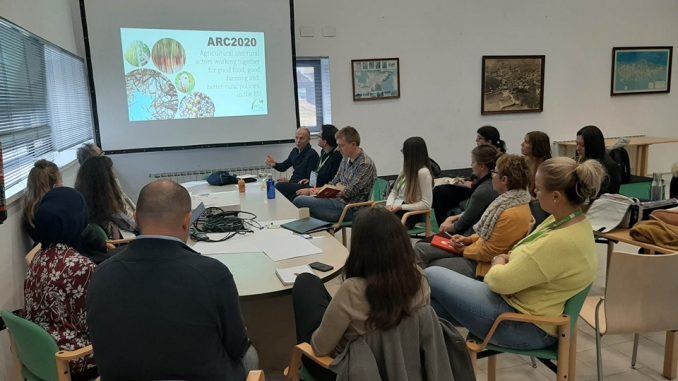
Oliver Moore, Hannes Lorenzen and Helene Schulze – The ARC2020 team – gave two workshops on local food.
Some of the main issues and lessons identified included the lack of digital and infrastructural connectivity for businesses in remote areas; the need to account for the wellbeing of the producer; bringing value chain back to the producer and the region; local or bioregional?; Opportunities in CAP Strategic Plans; Undifferentiated legislation for large and small producers; Opacity of supply chains, lack of cohesion between worlds of food and farming and rural development; making local produce desirable and accessible for rural communities; cosmetic perfection via supermarket routes to market; food waste; access to land and landgrabbing.
Best practice and ways forward included a huge range of ways to move food around differently. This were
- Collective purchasing initiatives like sostenibles.eu – a network which links up businesses in rural areas, to present their products, exchange and display best practice;
- Cooperative supermarkets;
- Farm shops;
- GAS and AMAP in Italy and France (consumer purchasing groups and CSAs respectively);
- Artisan food aggregating platforms like neighbourfood in Ireland and Tiesapirksana.lv in Latvia, for farmers to reach their consumers directly;
- Food coops – now emerging in the central and eastern countries (e.g. Forest Fruits cooperative with 9 farmers in Romania called Arome Transylvane);
- Box schemes including catch boxes for fish;
- Food Hubs and aggregating value;
- Community Supported Agriculture as one of the more thoughtful, considerate ways to do food in a region; CSAs represent a coming together, in various forms, of producers and local people, where risks, rewards and responsibilities are shared.
Beyond distribution, attention was drawn to
- Rejuvinated regional diets;
- Participatory Guarantee Systems (PGS);
- Quality regional markers such as PDO, PGI;
- Promoting organic for its multiple public goods including increased rural employment, attraction to younger and female farmers.
- Participatory budgeting;
- Public procurement for local public goods; appropriate-to-scale hygiene laws (as in for e.g. Austria and its local interpretations);
Local Food in One Paragraph
We even wrote up our own submission to the ERP’s manifesto. Time will tell if this makes it into the final document. Nevertheless, we found it to be a useful exercise to bring together, into a single paragraph, a place for local food.
We call upon European, national and regional decision-makers to work with local/regional stakeholders to support the production and consumption of local food. We valorise local/ regional varieties, culinary traditions and knowledge-holders. We want to increase the provision of local/regional food in canteens, hospitals, schools and other institutions because they are a way to build accessible, local/regional food chains. We want to encourage and expand food quality criteria of benefit to local and regional food producers such as PDO, PGI, PGC and organic. We advocate and work towards increased transparency of the food supply chain by assisting producers to access local/regional markets and reach out to consumers. We identify the importance of helping consumers make ethical choices by identifying the provenance of their products. We call for supports for regenerative local/regional food systems including CSAs and other community-supported initiatives which preserve (agro)biodiversity, combat climate breakdown and promote a just transition.
Outside of food, and in the domain of small family farms, we emphasised the need to bolster the proliferation and expansion of small family farms across Europe, and to detail their contribution to local economy and employment.
And finally we honed in on collective intelligence. The more people we have actively engaged in rural areas, the greater the collective capacity to keep them lively and fruitful. We want to move from a narrative and philosophy of competition to one of cooperation. Similarly, innovation needs to refer not just to technological innovation but also social innovation.
5: Rural Travel
The three ARCists who went each had some epic elements to their journeys. This is often the case when trying to get to various parts of rural Europe, especially if you are minimising or eliminating flying – and starting out from a rural location to begin with! Those who want to travel freely by land as an alternative will sometimes find a challenging, long and more immersive experience. It can be taxing on the body. There are trade offs too, from work to sharing the load of childminding for a longer period of time.
For all the benefits of land or sea travel, we need to make sure that rural-to-rural travel this way is relatively straightforward. And this is a core part of not leaving rural Europe behind, while ensuring a just transition away from fossil fuels. We’ll explore this topic in more detail here soon.



